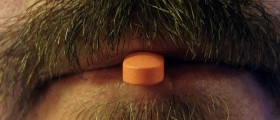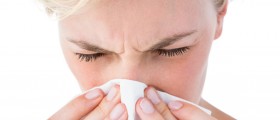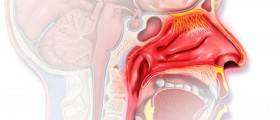Background med hx:
I am on advair 500/50 bid, spirivia respimat daily, montelukast daily, and xyzal daily. I had to go off of flonase due to bloody noses, and I am still miserable with mucus!!! It's my nose, and I have post nasal drip always thick running down the back of my throat. I haven't done mucinex, because it's really not coming from my chest, and I have done saline nasal rinses with short term, minimal relief. I inquired about allergy shots (tests were done in the fall but I had only been off of antihistamine 2 days when the tests were run), and she said that she doesn't think that I can be off of the antihistamine for a full 7 days this spring to receive the shots(not sure if her plan was to do move testing or not).
I am miserable. I have considerable daytime drowsiness with the xyzal, and have tried moving the dose to 9 pm, but then I start sneezing and running nose pretty badly during the afternoon. It's for 24 hour coverage, correct?
Is there a solution that would help me since it seems I won't be getting the allergy shots this season? Something I could ask about being added on to my medcal regimen that may help the mucus??
(short of moving out of Missouri!)
Thanks!
Loading...
I'm sorry to hear about your discomfort. Chronic nasal congestion, post-nasal drip, and other allergy-related symptoms can indeed be bothersome.
Given your background and current medications, there are several considerations:
-
Medication Timing: Xyzal (levocetirizine) is indeed a 24-hour antihistamine. The drowsiness you experience is a common side effect. Some people do find relief by taking it in the evening. If daytime drowsiness continues to be a problem, it might be worth discussing other antihistamines or dosing strategies with your doctor.
-
Steroid Nasal Sprays: Since you had issues with Flonase (fluticasone), you might discuss other intranasal corticosteroids with your doctor. There are several on the market, and they might not all cause the same side effects for you. These sprays can be very effective against allergic inflammation in the nose.
-
Antihistamine Nasal Sprays: These can be used either alone or in combination with intranasal corticosteroids. Azelastine is one such spray that might provide additional relief.
-
Other Medications: Ipratropium bromide nasal spray is an option that can help reduce watery nasal discharge, though it won't specifically target allergic inflammation.
-
Environmental Controls: Make sure to minimize exposure to allergens. This can include using high-efficiency particulate air (HEPA) filters, dust mite-proof covers, keeping windows closed during high pollen seasons, and washing pets frequently if they go outdoors.
-
Allergy Testing and Treatment: If the antihistamines are interfering with allergy testing, your allergist might consider using alternative testing methods, such as blood tests, to identify specific allergens. Based on those results, they might recommend specific avoidance measures, medications, or potentially allergy shots (immunotherapy).
-
Re-evaluation: Since your symptoms are so persistent despite being on multiple medications, it's crucial to have periodic re-evaluations with your healthcare provider. Sometimes other conditions can overlap or mimic allergy symptoms (e.g., non-allergic rhinitis, chronic sinusitis, etc.).
Lastly, while it may sound trivial, staying well-hydrated can help thin mucus, making it easier to clear.
Hope this helps.
Loading...
















